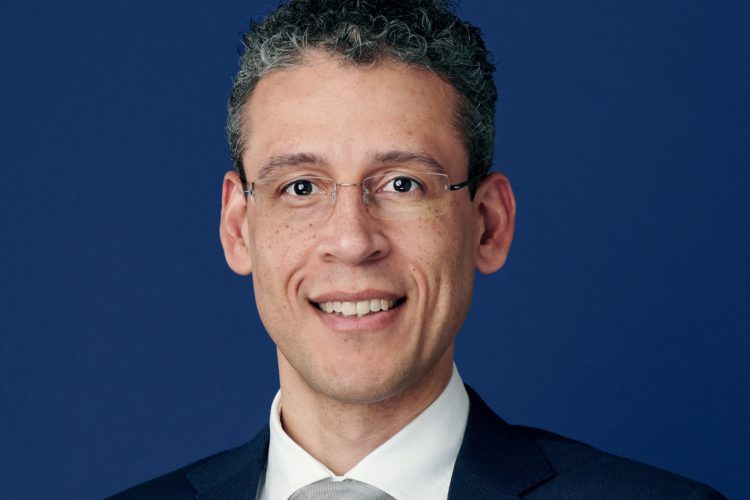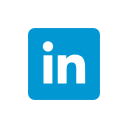Gershon Janssen
Board Chair and President
Reideate

Gershon Janssen serves as Board Chair and President of the OASIS Board of Directors; his term extends to 2024. Read Gershon’s Board Member Spotlight Q&A.

Board Chair and President
Reideate

Gershon Janssen serves as Board Chair and President of the OASIS Board of Directors; his term extends to 2024. Read Gershon’s Board Member Spotlight Q&A.

Our digital ecosystem is one of the greatest tools ever devised by humankind.
However, the presence of online predators presents a continuing challenge to parents and children everywhere. Preventing online exploitation and the sexual abuse of children all over the world is a serious challenge – and one that can be overcome thanks to the work of OASIS Open.
The Virtual Global Taskforce (VGT) has recommended the worldwide adoption of the OData standard developed by OASIS Open to enable much-needed compatibility among international law inforcement tools that help manage illicit images and video regardless of vendor. The result is an online environment in which young surfers are less likely to be exposed to inappropriate content.
Complex and valuable infrastructures like the Internet, which function over multiple channels and geographies require the standard-setting work of organizations like OASIS Open, so that the tools we develop truly result in improvements – rather than increased danger – for all.
The advent of online banking didn’t just make financial transactions easier and more convenient for people everywhere. More importantly, it helped democratize the international banking system, ensuring that more people in more place had virtually instant access to banking services. This, in turn, has supported wealth creation, creating a more equitable world.
Online banking was made possible thanks to the SAML and SSO open standards developed by OASIS Open. A complex system like international online banking – involving a multiplicity of stakeholders, regulations, digital interfaces and security – requires the fair, transparent standards developed by not-for-profit organizations like ours.
Creating standards for foundational systems that radically improve our world like these is OASIS Open’s proud heritage, and our continuing mission today and tomorrow.
In the past, sudden tsunamis, tornadoes and flash floods took communities by surprise – resulting in devastating cost to human life, and destruction to property and infrastructure. Today, communities everywhere are able to mitigate the destruction caused by natural disasters, thanks to early warning systems made possible by OASIS Open. Disseminated simultaneously over multiple communication outlets, these alerts warn communities of impending danger. So people have time to react, and get out of harm’s way.
Systems like these are enabled thanks to the open software and standards Open Oasis makes possible. Partnering with government, community and private industry players, OASIS Open helps to foster a common language and means of operation that allows such transformational systems to be put into place.
These complex and valuable infrastructures – over multiple channels and geographies – would simply not function without the work of organizations like OASIS Open.
The fair, transparent development of open standards and software is transforming the world, for the better. As one of the most respected, non-profit standards bodies in the world, we are a cornerstone in the development and implementation of social innovations like the early warning systems for tsunamis, floods and tornadoes that save lives and communities.
Secure Quick Response (QR) codes have become ubiquitous. By simply pointing our smartphones, we are able to safely gather information quickly and seamlessly. QR Codes themselves are easily available, ensuring a true democratization of efficiency. Today QR Codes have become an $8.7 billion industry – and none of it would have happened without the work of OASIS Open.
OASIS Open is an established non-profit organization where individuals, organizations and governments come together to solve some of the world’s biggest technical challenges through the development of open code and open standards. QR codes are only one of these open, fair, and transparent standards, which are transforming our world in a positive way, every day.
Information belongs to all of us. Indeed, access to information is seen as a necessity for effective participation in public life. OASIS Open makes that access possible.
The SAML standard developed by OASIS Open allows access to information to be enjoyed by all in Europe, where all citizens are legally entitled to it. As this complex web of information is gathered and stored by a multiplicity of players over a wide variety of channels in the private and public spheres, its management would simply not be possible without the standards set by organizations like ours.
As one of the most respected, non-profit standards bodies in the world, we can be counted on to develop far-reaching solutions that allow access to information to be an everyday reality.
E-invoicing has changed the way the world does business, creating a global $11 billion market that has benefited the environment by signficantly reducing waste. It is now used in over 190 countries the world over – and it was made possible thanks to the UBL standard developed by OASIS Open.
UBL is just one of the open, fair, and transparent standards developed by our not-for-profit organization. Every day we create protocols and software that allow complex systems to be integrated across multiple geographies and a complex web of regulations and private and public stakeholders.
So that, among other things, we can grow business, greener.
During the darkest days of the COVID-19 pandemic, time was of the essence in treating those hit hardest by the virus. Pin-pointing hospital bed availability within hours was a matter of life and death – and it was made possible thanks to the Florida Emergency Support System (ESS) developed with OASIS Open.
Work on the ESS began in 2017, when a number of nursing home residents died during power outages caused b Hurricane Irma. An application called RESTier was developed, powered by OData, to help collect vital information about healthcare facilities. This data was integrated into the ESS, which was activated for 24 months straight, handling tens of millions of records without a single documented outage.
Partnering with government, community and private industry players. OASIS Open helps to foster a common language and means of operation that allows transformational systems like the ESS to be put into place.
Every day, the world is being transformed for the better thanks to the fair, transparent open standards and software fostered by OASIS Open.
Protecting and enhancing biodiversity is key to creating a future in which our planet and everything living on it thrive. A crucial first step in realizing that goal is collecting and managing a potentially-bewildering and constantly evolving set of data from various sources.
That step is made possible by the OData standard developed by OASIS Open. This open interface allows organizations and individuals to directly integrate biodiversity data into their software systems. It was adapted early in its development and implementation by the NSW Office of the Environment to follow, store and make available over 7 million species sightings to track biodiversity over their Open Data Bionet Web Services. With this data on hand, the NSW’s Office of Environment and Heritage was able to improve it environmental decision-making and engagement with our natural ecosystem.
Today the NSW can constantly improve its environmental decision making by continually integrating up-to-date, consistent and reliable biodiversity data. And, in so doing, protect our precious natural heritage.
Cases like these demonstrate how transformational, positive change is being enabled by the work of OASIS Open.
Since the Amber Alert Emergency response system was established in 1996, 1,127 children abducted around the world have been successfully recovered. Amber Alerts are broadcast simultaneiously over television and radio stations, text messages, e-mail, electronic traffic-condition signs, commercial bill-boards, and more.
The operations of this complex and valuable system – over multiple channels and geographies – would not have been possible without the standards developed and put into place by OASIS Open.
As one of the most respected, non-profit standards bodies in the world, we offer partners the ability to develop and implement social innovations like the Amber Alert system that transform society for the betterment of all.
We do it by fostering and enabling the fair, transparent development of open software and standards, through the power of global collaboration and community. The result: foundational changes that make a lasting impact on human lives.